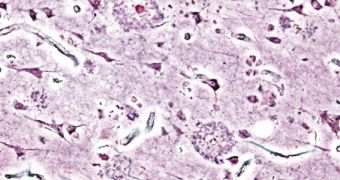According to a new investigation by scientists at the Stockholm University in Sweden, it would appear that adults nearing old age can assess themselves for their risk of developing dementia later on. This can be done simply by keeping track of how well your sense of smell is doing.
In their study, investigators determined that smell decline or loss usually precedes the development of dementia – including mild cognitive impairment and Alzheimer's disease – by about 10 years. Having access to such a huge time frame of early warning could potentially enable doctors to prescribe treatments that slow down the development of dementia significantly.
This investigation is the first ever to look at self-reported olfactory impairment as a potential risk factor for dementia before the usual age threshold for this disease. The best thing about this approach is that it can be applied to everyone, is easy and free to conduct, and may produce outstanding results.
Details of the investigation were published in a recent issue of the Journal of the International Neuropsychological Society. The lead author of the work was Stockholm University postgraduate student Ingrid Stanciu, PsychCentral reports. A total of 1,529 test subjects were followed for a full decade for this study.
Of the study group, 159 participants went on to develop some form of dementia. In these cases, experts correlated the development patterns of the disease with the age, cognitive ability status, and objective or subjective olfactory impairment reports provided by these test subjects at the start of the study.
“Our study is important because it shows that self-reported olfactory impairment can be an early sign of, for example, Alzheimer’s disease. Earlier studies have implied a connection between olfactory impairment and dementia but have not looked at how people experience their own sense of smell,” Stanciu explains.
“We believe that self-reported olfactory impairment should be complementary to other factors when the risk of developing dementia is evaluated. Future studies must go further and, among other things, examine which olfactory evaluation procedures are most useful to evaluate the risk of dementia,” she adds.
However, the research group is the first to acknowledge that a diminishing sense of smell should not be interpreted as a dementia diagnosis right off the bat. In most cases, people in the study who suffered from olfactory impairment did not go on to develop dementia, even if their overall risk was elevated.
This highlights the need for this type of self-assessment to be conducted in tandem with other types of diagnosis methods, the team argues. In this manner, the early-stage detection of dementia and associated mental declines may become easier and faster than ever.

 14 DAY TRIAL //
14 DAY TRIAL //